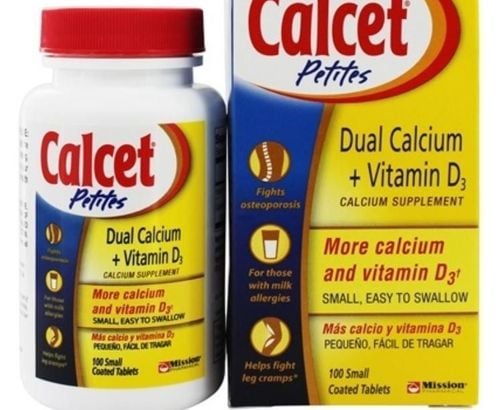This is an automatically translated article.
Orange juice is a favorite drink of many people when orange juice contains many important nutrients such as vitamin C, potassium. Plus, commercial orange juice products are often fortified with calcium and vitamin D. So what are the health benefits of orange juice?
1. Nutritional composition of orange juice
In fact, surveys show that orange juice is the most popular juice in the world. Manufacturers produce about 1.6 billion tons of this beverage per year. In addition to buying a variety of orange juice at the grocery store, you can also make your own orange juice by hand or with a juicer. Therefore, many consumers often ask the question whether drinking orange juice daily is good?
Orange juice contains many beneficial nutrients, most notably Vitamin C, but if you drink orange juice daily, you should consider the amount of sugar in each serving. You can choose a 100% fruit juice version with no added sugar.
Nutrition facts in a cup of fresh orange juice include: Calories: 112; Protein: 2 grams; Fat: 0 grams; Carbohydrate : 26 grams; Fiber: 0 grams; Sugar: 21 grams... In addition, orange juice is a good source of: Vitamins; Vitamin A; Calcium; iron; Folate...
Orange juice with pulp is a pretty good source of fiber. Studies have shown that fiber helps the body maintain digestive health and may reduce the risk of diseases such as diabetes, cardiovascular disease, and certain types of cancer.
Orange juice is a concentrated source of vitamin C, a water-soluble vitamin that doubles as a powerful antioxidant and plays a central role in immune function. In addition, vitamin C helps promote bone formation, wound healing and gum health.
Folate in orange juice has a role in DNA synthesis and supports fetal growth and development. Not to mention, orange juice is a great source of the mineral potassium, which helps regulate blood pressure, prevent bone loss, and protect against heart disease and stroke.
2. Potential Health Benefits of Orange Juice
Orange juice is very nutritious, but it is important to limit your intake because of its high sugar content. Research has found that drinking orange juice in moderation can offer many potential health benefits:
2.1. High in antioxidants The antioxidants in orange juice promote health by preventing the effects of oxidative stress.
Several studies have proven that antioxidants are important for maintaining overall health. They may even help protect against chronic diseases, such as heart disease, cancer, and diabetes. Orange juice is a rich source of antioxidants such as flavonoids, carotenoids and ascorbic acid.
An 8-week study showed that drinking 750 ml of orange juice per day significantly increased antioxidant status. Similar to these results, the study applied drinking 591 ml of orange juice daily for 90 days increased the overall antioxidant capacity of adults with high cholesterol and triglycerides.

Nước cam chứa nhiều chất chống oxy hóa
2.2. Can help prevent kidney stones Kidney stones are small mineral deposits in the kidneys that often cause symptoms such as severe pain, nausea, or blood in the urine.
Orange juice can increase the pH of the urine, thereby making it more alkaline. Studies show that having a high urine pH and being alkaline helps prevent kidney stones. This result was also found in a small study that looked at the role orange juice was more effective than lemon juice in reducing several risk factors for kidney stones.
Another study that applied orange juice to 194095 people found that those who drank orange juice at least once a day had a 12% lower risk of developing kidney stones than those who drank less than one serving of orange juice. part a week.
2.3. Improve heart health Cardiovascular disease is one of the serious problems, contributing to more than 17 million deaths worldwide each year. Some research shows that consuming orange juice for people with cardiovascular disease can reduce some risk factors for heart disease such as high blood pressure and high cholesterol and help keep the heart healthy. .
In a study done in 129 people along with drinking orange juice, it was found that the long-term effect of drinking orange juice reduced total LDL cholesterol levels.
Furthermore, a review of 19 studies on the benefits of orange juice on cardiovascular disease noted that drinking the juice had an effect on lowering diastolic blood pressure.
Orange juice has also been shown to increase HDL cholesterol levels in people with high levels which can improve heart health.
2.4. Orange juice can reduce inflammation Acute inflammation, a normal part of the immune response designed to protect against disease and infection. However, over prolonged periods of time, high levels of inflammation can accelerate the development of chronic diseases. Elevated markers of inflammation such as C-reactive protein (CRP), interleukin-6 (IL-6) and tumor necrosis factor-α (TNF-α) have all been seen in metabolic syndromes , cardiovascular disease and some cancers .
Some studies confirm the role of orange juice in reducing inflammation and problems related to inflammation. Orange juice also has anti-inflammatory properties that can reduce levels of specific inflammatory markers associated with chronic disease.
Furthermore, a study with 22 people over an 8-week period found that drinking both fresh orange juice and commercial orange juice reduced inflammatory markers such as CRP and IL-6 - potentially supporting prevent disease.
2.5. Weight control The high sugar content in orange juice, especially in orange juice that contains added sugar, makes orange juice a high-calorie beverage. For those following a calorie-restricted diet to lose weight, low-calorie, dense foods are more effective.

Nước cam có thể giúp kiểm soát cân nặng
3. Potential disadvantages of orange juice
Although orange juice may offer some health benefits, orange juice is also high in calories and sugar. Furthermore, unlike whole fruit, oranges lack fiber and can lead to weight gain.
In fact, many studies show that weight can gain or lose control if orange juice is used too much. Sometimes, many orange juices contain high levels of added sugars that can lead to blood sugar spikes.
Some studies have found that regularly drinking sugar-sweetened beverages, such as fruit juices, may be associated with an increased risk of type 2 diabetes. Practice portion control of sugar content. in beverages and choosing 100% freshly squeezed orange juice can help maximize the health benefits. You can also apply the dilution of orange juice with water to cut calories and sugar to prevent weight gain. For children, juice intake should be limited to no more than 118 ml per day for toddlers aged 1–3 years, 177ml for children 4–6 years old and 240ml for those aged 7-18 years.
4. Healthier Alternatives
Look for orange juice that doesn't contain added sugar and also consider high-fiber orange juice, which contains more healthy fiber. You can even find orange juice fortified with calcium, as well as vitamin D, which is not found in natural orange juice.
Orange juice is a favorite beverage packed with antioxidants and micronutrients like vitamin C, folate and potassium. Regular consumption has been linked to a number of health benefits, including improved heart health, reduced inflammation, and a reduced risk of kidney stones. However, it's also high in calories and sugar, so it's best to consume it in moderation and choose freshly squeezed or 100% orange juice whenever possible.
If you have doubts about whether you should drink orange juice or in case you have a medical problem that needs detailed advice, you can contact Vinmec International General Hospital for advice. Care by a team of highly qualified doctors.
Please dial HOTLINE for more information or register for an appointment HERE. Download MyVinmec app to make appointments faster and to manage your bookings easily.
Reference source: webmd.com - healthline.com












